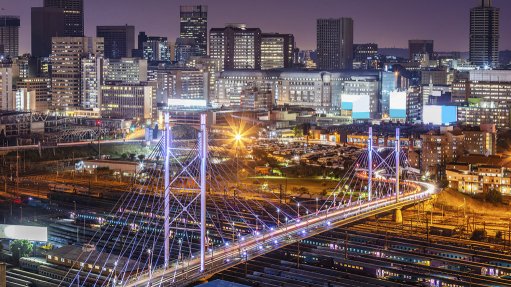
Covering a land area of just 18 176 km² within Africa’s vast 30.37-million square kilometre land mass, the province of Gauteng punches far above its weight in terms of impact.
So named and developed because of its rich gold reserves, Gauteng remains a hub for business growth and prosperity nearly 140 years after the first gold rush in the region. Today, Gauteng’s ‘gold’ is its modern infrastructure, thriving business environment and skilled and educated citizens.
As the preferred first stop for air cargo and visitors to South Africa, Gauteng is directly connected to the rest of Africa and to global economies. The province’s modern logistics infrastructure has long supported bilateral trade in raw materials and goods, while its expansive manufacturing and warehousing capacity has made the province an industrial powerhouse. Gauteng’s top five imports from Africa are nickel, precious stones, mineral ores, sugar and tobacco, while the province’s top five exports to Africa are capital equipment, mineral fuels, vehicles, electrical machinery, and plastics. Africa also shines as a destination market for 86% of the photographic equipment, 78% of the fertilizer, and 65% of the manufacturing equipment shipped from Gauteng. Additionally, Gauteng remains a key manufacturing market for the continent, exporting 54% of pharmaceutical goods and 50% of electrical equipment to the continent.
Since 2017, South Africa's total trade with Africa has reached R2.9-trillion – driven largely by Gauteng. Gauteng alone accounts for over 60% of the total value of goods and services exported from South Africa to the rest of Africa, and 55% of the goods and services imported from the rest of Africa to South Africa, and these volumes continue growing.
Gauteng’s top ten export markets in Africa, accounting for 84% of our intra-Africa exports, are Mozambique, Nigeria, Ghana, Zimbabwe, Mauritius, the Democratic Republic of Congo, Kenya, Tanzania, Angola and Zambia, while 92% of the province’s intra-Africa imports are from Nigeria, Mozambique, Kenya, Botswana, Zambia, Angola, Ghana, Zimbabwe, Namibia and Tanzania.
Since 2017, Gauteng enterprises have also been Africa's largest intra-Africa investors, with R314.8-billion in outward foreign direct investment creating thousands of jobs.
Despite these impressive and mutually beneficial trade figures, Gauteng plans to expand and diversify its trade with Africa. An important growth area is the digital economy. As home to numerous internationally recognised tertiary education institutions, scores of multinational regional offices, a highly skilled and educated knowledge workforce, advanced high speed communications infrastructure, and the bulk of Africa's data centres, Gauteng is positioned as a key centre for trade in digital products and services.
As an ever-growing and continually evolving globally competitive city region, Gauteng is an innovative and thriving hub for trade and investment with the rest of Africa.
As we celebrate 30 years of freedom in South Africa, Gauteng stands ready to strengthen our already-robust economic ties and partnerships with pan-Africa for the prosperity of all.
Insights supplied by the Gauteng Growth and Development Agency (GGDA); the implementation arm of the Gauteng Department of Economic Development, tasked with leading, facilitating and managing sustainable job creation and inclusive economic growth and development in the Gauteng City Region.